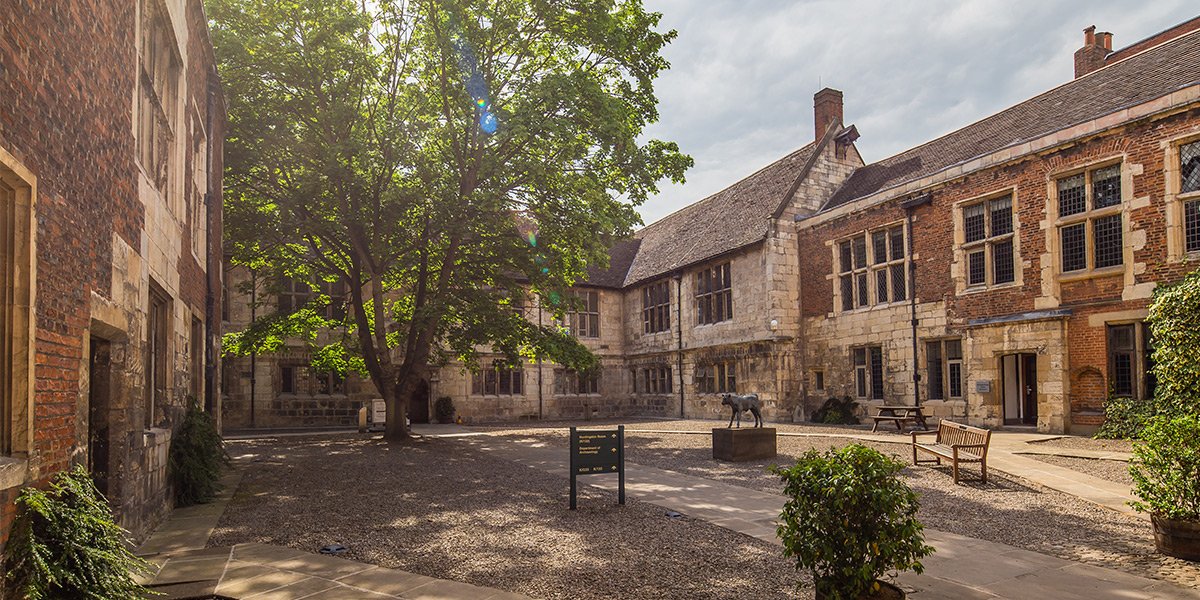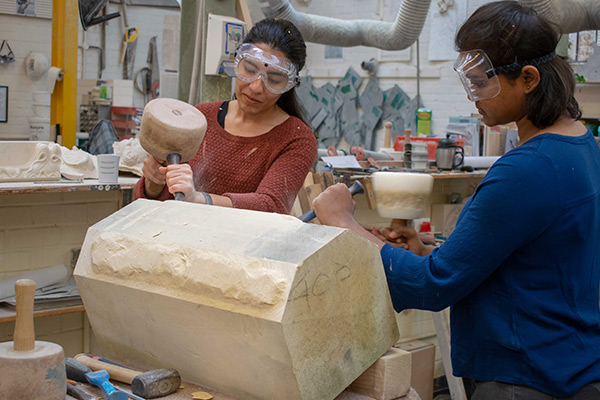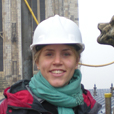
Essential practical and professional skills in historic building conservation
Year of entry: 2025 (September)
1 year full-time,
2 years part-time,
3 years part-time
September 2025 (semester dates)
Join us online or in person to find out more about postgraduate study at York.
Upcoming eventsQS World University Rankings by Subject, 2024
QS World University Rankings by Subject, 2024
Engage with conservation in the context of historic buildings and develop a unique mix of practice-based and theoretical learning for your professional work or further research in the conservation sector. This course is accredited by the Institute of Historic Building Conservation (IHBC).
Established in 1972, this course combines essential disciplinary knowledge and advanced scholarship with hands-on experience in sustainable building conservation practice. Working alongside experienced practitioners, you will engage with practical and professional issues in a series of focused skills modules from an exciting range of related disciplines and develop your own hands-on experience in practice.
A voluntary work placement in a conservation organisation in the York region will enhance and focus your practice-based experience and you will develop your research skills in an original, independently conducted research project.
MA Conservation of Historic Buildings is recognised by the Institute of Historic Building Conservation (IHBC) and offers a bespoke route for UK practitioners to achieve full professional membership of the IHBC.
Graduates of this course with just two years of relevant professional experience can apply to become a Full Member of the IHBC. This compares with the five years of relevant practice required of other applicants. Find out more about accreditation.
The course conforms with the international ICOMOS Guidelines for Education and Training in Conservation.
 Studying this course at the University of York was probably one of the best choices I made in life. Studying in York, where history still thrives was an amazing experience. I had the opportunity to do conservation work at York Minster, which gave me a broader perspective from the point of view of technicians, stonemasons and conservationists.Aya, MA Conservation Studies (Historic Buildings)
Studying this course at the University of York was probably one of the best choices I made in life. Studying in York, where history still thrives was an amazing experience. I had the opportunity to do conservation work at York Minster, which gave me a broader perspective from the point of view of technicians, stonemasons and conservationists.Aya, MA Conservation Studies (Historic Buildings)
You will study 180 credits over the duration of your course. You'll take a variety of modules and a curated placement, then hone your research skills by producing a dissertation and presenting an assessed lecture on your dissertation topic:
Your core modules will cover topics such as:
This programme is accredited by the IHBC and has no option modules.
Our modules may change to reflect the latest academic thinking and expertise of our staff, and in line with Department/School academic planning.
You'll complete an 8,000-word dissertation on your research.
You will receive support, advice and guidance from your dissertation supervisor throughout your project. The range of expertise of our staff means we can provide you with guidance on a wide range of topics. You will have one-to-one meetings with supervisors across the Summer Semester.
Recent examples of dissertations have included:
Every course at York is built on a distinctive set of learning outcomes. These will give you a clear understanding of what you will be able to accomplish at the end of the course and help you explain what you can offer employers. Our academics identify the knowledge, skills, and experiences you'll need upon graduation and then design the course to get you there.
York is the UK's archaeological capital and we use it extensively as our ‘living lab’ for both teaching and research.
Informality is one of our distinctive qualities - the atmosphere in our department is friendly, supportive and enthusiastic. We want you to develop your potential and thrive at York.
| Study mode | UK (home) | International and EU |
|---|---|---|
| Full-time (1 year) | £11,200 | £25,900 |
| Part-time (2 years) This is the year 1 fee. Fees for future years are subject to confirmation. |
£5,600 | £12,950 |
| Part-time (3 years) This is the year 1 fee. Fees for future years are subject to confirmation. |
£3,733 | £8,633 |
Students on a Student Visa are not currently permitted to study part-time at York.
For courses which are longer than one year, the tuition fees quoted are for the first year of study.
UK (home) or international fees? The level of fee that you will be asked to pay depends on whether you're classed as a UK (home) or international student. Check your fee status.
Find out more information about tuition fees and how to pay them.
We don't anticipate there being any additional fees associated with this course. All books and resources you need will be available in the library or online and it isn't mandatory that you buy your own copies. You may wish to set aside a small budget for photocopying, depending on how you like to work.
Many of the modules have field trips associated with them. These are paid for by the department.
If you wish to undertake an optional placement as part of the course, you will need to meet the costs of things like travel to and from the placement yourself.
Discover your funding options to help with tuition fees and living costs.
We'll confirm more funding opportunities for students joining us in 2025/26 throughout the year.
If you've successfully completed an undergraduate degree at York you could be eligible for a 10% Masters fee discount.
We are pleased to work with Chevening Scholars to offer funding for our Masters programmes. Chevening Scholarships provide one year of fully-funded postgraduate study in the UK for international (including EU) students. The scholarships are open to early and mid-career professionals who have the potential to become future leaders.
We have a variety of funding options available within the department.
You can use our living costs guide to help plan your budget. It covers additional costs that are not included in your tuition fee such as expenses for accommodation and study materials.
 One year in the Department of Archaeology was enough to gain a variety of useful skills that I will carry with me, miles away from York. MA in Conservation Studies (Historic Buildings) was as important for me to develop critical thinking, as to get a complete picture in the subject of conservation and manage to apply all that knowledge in the Mediterranean culture back home.Anna, MA Conservation Studies (Historic Buildings)
One year in the Department of Archaeology was enough to gain a variety of useful skills that I will carry with me, miles away from York. MA in Conservation Studies (Historic Buildings) was as important for me to develop critical thinking, as to get a complete picture in the subject of conservation and manage to apply all that knowledge in the Mediterranean culture back home.Anna, MA Conservation Studies (Historic Buildings)
You’ll work with world‐leading academics who’ll challenge you to think independently and excel in all that you do. Our approach to teaching will provide you with the knowledge, opportunities, and support you need to grow and succeed in a global workplace.
You'll be taught through a combination of lectures, workshops, seminars and site visits.
There is plenty of one-on-one guidance with staff and leading external experts in the conservation and heritage sector.
You will be based on Campus West.
Our beautiful green campus offers a student-friendly setting in which to live and study, within easy reach of the action in the city centre. It's easy to get around campus - everything is within walking or pedalling distance, or you can always use the fast and frequent bus service.
You will be assessed by a variety of methods, including:
.jpg)

Graduates have gone on to careers in archaeology and heritage-related organisations across the UK and abroad. You'll also develop transferable skills that are applicable to a multitude of careers beyond archaeology and heritage.
 I thoroughly enjoyed being part of the department; York is the perfect place to study old buildings! The course provided hands-on experience in the construction, decay, interpretation and conservation of building fabric. There is no doubt that my year at York has been instrumental in kick-starting a career in building conservation.Jennifer, MA Conservation Studies (Historic Buildings)
I thoroughly enjoyed being part of the department; York is the perfect place to study old buildings! The course provided hands-on experience in the construction, decay, interpretation and conservation of building fabric. There is no doubt that my year at York has been instrumental in kick-starting a career in building conservation.Jennifer, MA Conservation Studies (Historic Buildings)
| Typical offer | |
|---|---|
| Undergraduate degree | 2:2 or equivalent in Architecture, Archaeology, History, History of Art, Architectural History or a relevant subject. |
| Other qualifications and experience | Mature students or those with less conventional qualifications but with relevant work experience will be considered. To find out if your professional experience or qualifications are appropriate, please contact the Course Director. |
| Other international qualifications | Equivalent qualifications from your country |
You will need to submit examples of written work with your application. Please see our guidance on submitting written work.
If English isn't your first language you may need to provide evidence of your English language ability. We accept the following qualifications:
| Minimum requirement | |
|---|---|
| IELTS (Academic and Indicator) | 6.5, minimum 6.0 in each component |
| Cambridge CEFR | B2 First: 176, with 169 in each component |
| Oxford ELLT | 7, minimum of 6 in each component |
| Duolingo | 120, minimum 105 in all other components |
| LanguageCert SELT | B2 with 33/50 in each component |
| LanguageCert Academic | 70 with a minimum of 65 in each component |
| Kaplan Test of English Language | 459-494, with 426-458 in all other components |
| Skills for English | B2: Merit overall, with Pass with Merit in each component |
| PTE Academic | 61, minimum 55 in each component |
| TOEFL | 87, minimum of 21 in each component |
| Trinity ISE III | Merit in all requirements |
For more information see our postgraduate English language requirements.
You may be eligible for one of our pre-sessional English language courses. These courses will provide you with the level of English needed to meet the conditions of your offer.
The length of course you need to take depends on your current English language test scores and how much you need to improve to reach our English language requirements.
After you've accepted your offer to study at York, we'll confirm which pre-sessional course you should apply to via You@York.

We offer a range of campus accommodation to suit you and your budget, from economy to premium.

Explore campus and city life and hear what our current students have to say about living here.

Lively, full of culture and beautiful, York is regularly voted one of the best places to live and visit in the UK.

Find out more about York. Chat to staff and students and take the tour, on campus or online.